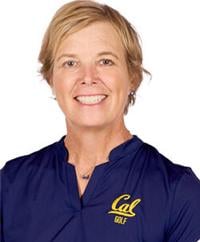Family doctors’ iPhones may soon be incorporated into regular checkups to help monitor and detect heart conditions, thanks to a new startup company run by UC Berkeley students. When Eko Devices’ CEO, Connor Landgraf, was tasked with finding and solving a modern-day medical problem in his senior thesis class, he took his work straight to the marketplace rather than limiting it to a grade on an assignment. Mere months after the class ended, the company launched with designs to incorporate modern technology into standard medical procedures. Thus, the company’s venture was born: improving the accuracy of monitoring heart conditions by modifying an established, 200-year-old technology — the analog stethoscope. Though the stethoscope is used by almost all physicians, pediatricians and cardiologists, interpretation and understanding of the heart’s sounds are frequently susceptible to human error. According to Landgraf — a former ASUC president and one of the six UC Berkeley students behind the company’s creation — four out of every five new doctors are unable to detect and diagnose common heart problems with today’s stethoscope. “The result is a huge number of individuals with heart conditions are misdiagnosed or not diagnosed at all, and health care practitioners are referring far too many people to cardiologists unnecessarily,” Landgraf said. To remedy this inevitable human limitation to detect faint heart murmurs, the company has created a “stethoscope attachment,” a microphone device that attaches to a doctor’s stethoscope to amplify and digitally capture the sounds of a patient’s heart. The device then uses bluetooth technology to relay the recorded information to a smartphone, from which the recording can be replayed or sent to another physician for feedback on whether an abnormality is present. Doctors can subscribe to the company’s compiled database of heart recordings and compare the sounds of their patients’ heart murmurs to recordings of identified heart conditions, thereby increasing the chances of an accurate diagnosis. “(Our) device is a really good point of support that provides a second check for doctors,” said Jason Bellet, the company’s head of business development and a former ASUC senator. “This product is at the cutting edge of medicine. We’re innovating a really old technology that every doctor has and uses, and by simply purchasing our attachment, they’ll be able to have a much more productive device.” Currently, doctors have limited substitutes for their traditional stethoscopes. Electronic stethoscopes can record the sound of a beating heart but cannot use computer systems to analyze the recording. Phonocardiograms, which attach microphones directly to the heart, are expensive and therefore typically reserved for cardiologists, not general practitioners. Eko Devices’ stethoscope addition could fill this void and offer seamless, affordable performance. The company has a nonfunctioning prototype of the device and is expecting to have a complete, fully functioning model by next month. After that, the company plans to start a pilot program with a local hospital while it awaits FDA approval for the device. According to Landgraf, if approved, the stethoscope addition should be on the market for about $100 by the end of the year and will resolve some pervasive problems in health care — an industry that he says needs tremendous help. [embed]https://www.youtube.com/watch?v=lnDlJfmlgUo[/embed] “As medicine is entering the modern tech era, the one device that seems to be left in the dark ages is the stethoscope,” Bellet said. “The number of new doctors unable to detect many heart defects throws up a red flag. If we can modernize this technology and make it affordable and accessible, there’s no reason why doctors wouldn’t want to incorporate it into their practices.”
Startup founded by students aims to revolutionize modern stethoscope
- By Claire Chiara
- Comments
Tags
comments powered by Disqus











